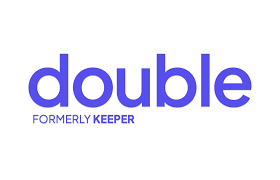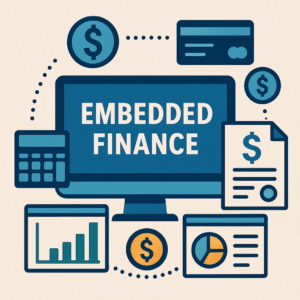Rethinking Pay: The Impact of AI Upon Payroll Processes

The impact of AI upon payroll processes is compelling businesses to reconsider what was once a purely administrative task. Payroll, traditionally viewed as a back-office function, is now a focal point for automation, machine learning, and predictive analytics. From reducing errors to forecasting workforce costs, AI is transforming how employees are compensated and how organizations plan.
From Back Office to Strategic Lever
Historically, payroll departments operated in the background, gaining attention only when errors occurred. Today, AI-driven systems are elevating payroll to a strategic function. A recent study by MHR reveals that AI will influence payroll functions as anticipated by 73% of payroll professionals. They expect this change over the next year. This shift is supported by data from OpenLedger. It projects that AI adoption in payroll will reach 50% by 2025. Organizations are reporting 25–50% reductions in processing times. Additionally, there are 30–40% improvements in accuracy.
These advancements are enabling payroll departments to move beyond mere transaction processing. AI tools are now used for tasks such as anomaly detection. They are also used for salary benchmarking and compliance monitoring. This allows payroll professionals to focus on more strategic activities.
The Paradox of Automation
Despite the promising benefits, the integration of AI into payroll processes is not without challenges. A report from Gartner indicates that 58% of finance sectors are using or testing AI technologies. However, the adoption rate in payroll is still growing. Additionally, a study by OpenLedger found that AI adoption in payroll is projected to reach 50% by 2025. Many organizations still face obstacles in fully integrating AI into their systems.
These challenges highlight the need for comprehensive training and system integration to maximize the benefits of AI in payroll. Without addressing these issues, organizations may struggle to realize the full potential of AI-driven payroll solutions.
Compliance in Real Time
One of the most significant advantages of AI in payroll is its ability to enhance compliance. Payroll departments must navigate a complex landscape of tax codes, wage laws, and reporting standards. Traditional software often lags behind regulatory changes, leading to potential compliance risks. AI systems can monitor regulatory changes in real time, updating calculations automatically and flagging potential issues before they become problems.
This proactive approach to compliance is particularly valuable for multinational organizations operating in multiple jurisdictions. AI can help ensure that payroll processes adhere to local regulations, reducing the risk of costly penalties and reputational damage.
Employee Experience
AI is also improving the employee experience by providing greater transparency and accessibility. Tools like chatbots and self-service portals enable employees to access their pay information. Employees can resolve issues without directly interacting with payroll staff. This not only enhances employee satisfaction, but also reduces the administrative burden on payroll departments.
Moreover, AI can offer personalized insights into compensation, helping employees understand their pay structure and benefits more clearly. This level of transparency fosters trust and can contribute to higher employee engagement and retention.
Strategic Forecasting
AI’s predictive capabilities are enabling payroll departments to contribute more effectively to strategic planning. By analyzing historical data, AI can forecast future payroll expenses, identify trends, and provide insights into potential cost-saving opportunities. This information is invaluable for financial planning and budgeting, allowing organizations to make informed decisions about workforce management.
AI can predict the financial impact of hiring decisions. It can assess changes in compensation structures or shifts in labor laws. This helps organizations plan accordingly and avoid unexpected costs.
Real-World Time Savings
Real-life use supports these facts. At Communicorp UK, payroll took two days per month. After adopting an AI platform, the same task now takes just one hour. AI has enabled deeper human-focused work, such as staff relations and onboarding.
Security and Ethics
With the increased use of AI in payroll comes heightened concerns about data security and ethical considerations. Payroll data is highly sensitive, and organizations must ensure that AI systems are secure and comply with data protection regulations. Implementing robust cybersecurity measures and conducting regular audits are essential to safeguarding payroll data.
Ethical considerations also play a crucial role. Organizations must ensure that AI systems are transparent, fair, and free from bias. This includes regularly reviewing algorithms to ensure they do not inadvertently disadvantage certain groups of employees.
Investment Momentum
The growing recognition of AI’s potential in payroll is reflected in increased investment. A report by McKinsey highlights that 92% of businesses plan to increase their investments in AI. They intend to do this over the next three years. This trend is clear in the payroll sector. Companies are investing in AI-driven solutions. Their goal is to enhance efficiency, accuracy, and compliance.
For example, Paycom Software has raised its 2025 revenue and profit forecasts. They attribute the growth to heightened demand for their AI-powered payroll services. The company’s smart AI toolset automates tasks like job description writing and helps identify at-risk employees, streamlining workforce management processes.
Rethinking Pay
The impact of AI upon payroll processes is profound and multifaceted. Challenges remain. The benefits of AI in payroll are undeniable. These benefits include increased efficiency, improved compliance, enhanced employee experience, and strategic forecasting. As organizations continue to embrace AI, payroll departments are changing. They are evolving from administrative units to strategic partners. This change contributes to the overall success and agility of the business.
In conclusion, AI is reshaping how employees are paid. It is also transforming the very function of payroll within organizations. As AI technology continues to advance, its role in payroll will become more integral. It will offer new opportunities for innovation and improvement.





